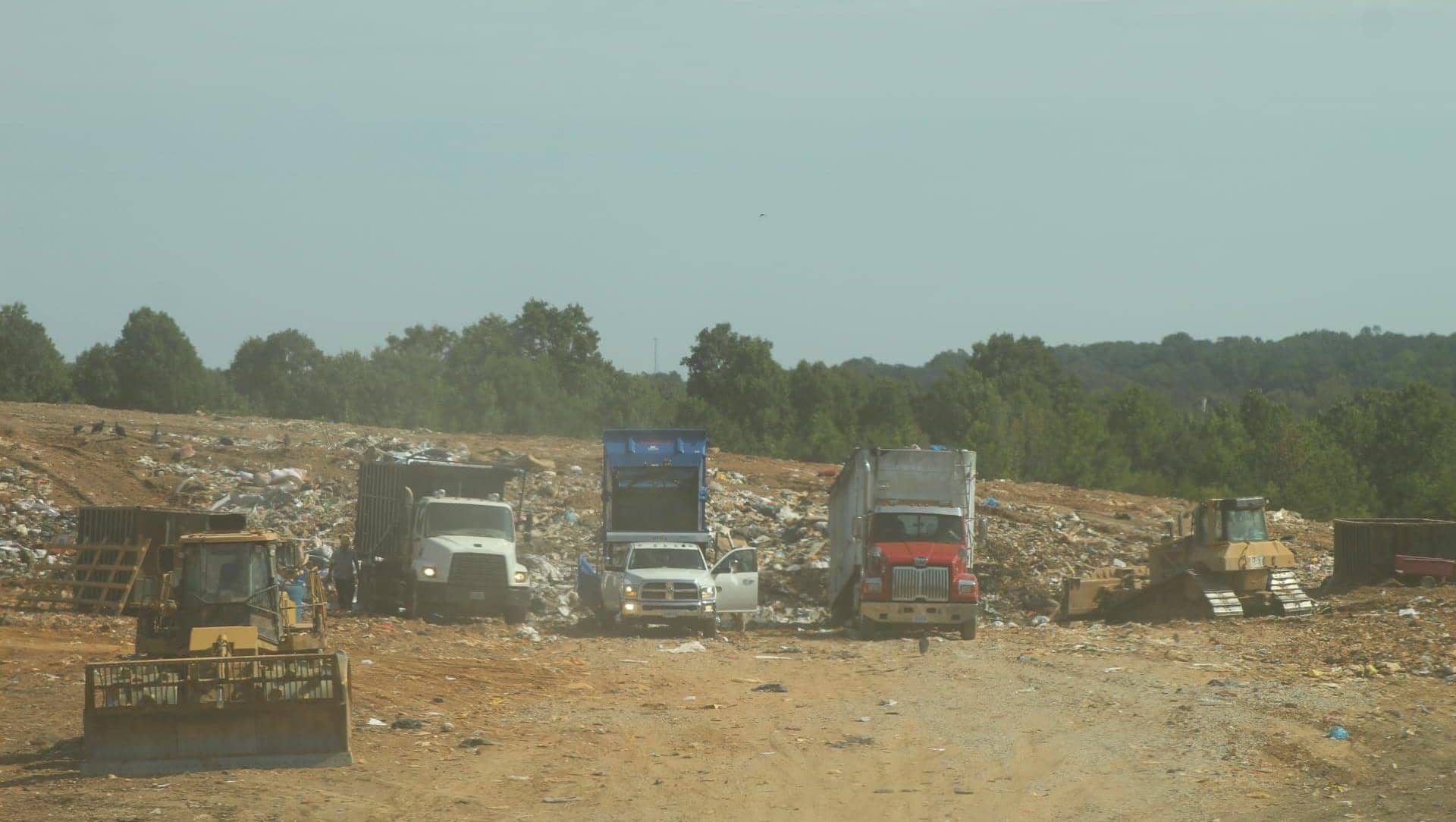
Pittsylvania County is using the landfill as a learning experience for some students. This school year the landfill will provide a learning experience for the county’s STEM Academy environmental science students.
The students are studying natural resources and how various policies concerning landfills can affect the quality of ground water, erosion, the containment of toxic substances, the impact on nearby residents and wildlife, plans for future reclamation and other concerns.
To prepare for the trip, ninth grade environmental science teachers Lenora Goodwin and Karen Holshouser with the Pittsylvania County Schools STEM Academy took a tour of the landfill last week with Director of Public Works Chris Adcock.
Holshouser said the idea behind the landfill tour was to allow students to “see it with their own eyes.”
During the tour, Adcock explained how the solid waste “cells” are created, lined, filled, capped and eventually seeded over with vegetation. He explained that the landfill is not yet large enough to require the capture of methane and that the groundwater is monitored regularly and the results are reported to the Virginia Department of Environmental Quality (DEQ). Adcock showed the teachers the leachate holding pond and noted that turtles and frogs live there.
One portion of a landfill cell where material had been removed for repairs clearly showed how plastic does not degrade, as many items were clearly visible and intact, despite having been there for up to 20 years.
The area was excavated to repair an underdrain that collects the leachate which gets sent to the wastewater treatment facility.
Looking to the future of the landfill, Adcock said one idea is to install a solar field on a now closed and vegetated area near the office – increasing the value of the landfill by contributing to green energy.
Goodwin and Holshouser asked Adcock about potential careers in the field of solid waste management, which range from engineering and geology to heavy equipment operators.
Goodwin and Holshouser said the study unit will also include trips to the Chatham water treatment plant, the Danville wastewater treatment plant, a biomass plant and coal power plant with Mecklenburg Electric Cooperative, among other visits to pertinent sites and organizations.
“Our goal in the STEM program environmental science class is to help our students to be informed citizens so that they can make the best decisions for our community and for our environment, realizing that everything has a cost and never forgetting to count the cost as well as the benefits when making purchasing and eventually policy decisions. We also want them to realize that there are many career opportunities right here in our local communities (including industry and health), and what some of those are, that they may have never considered. A firsthand look at these places gives them insights into the process, possibilities, and challenges faced in our community. It is very different to read about or watch videos of some distant place and its processes than it is to have students engage all of their senses in the experiences and have an opportunity to ask questions of those who are working in these situations and who have firsthand information about the processes and practices of each of these industries,” said Goodwin and Holshouser.